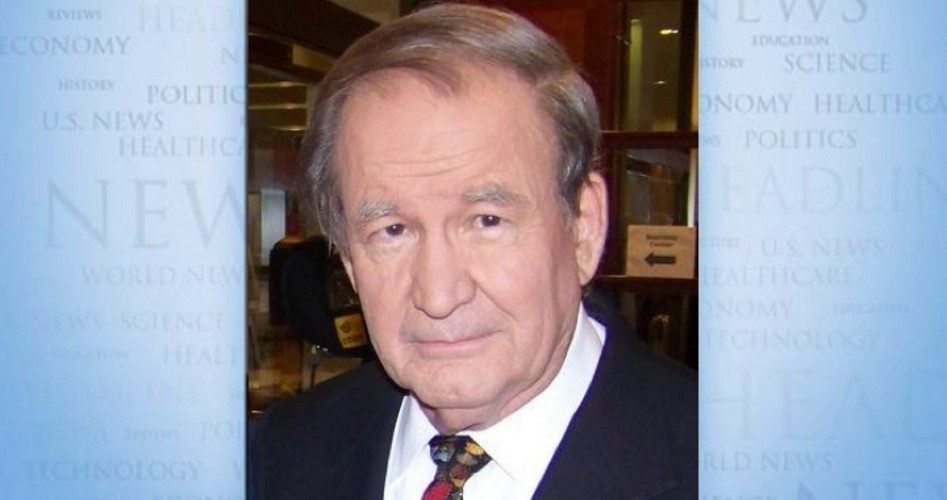
“We have met the moment and we have prevailed,” said President Donald Trump Monday, as he supported the opening of the U.S. economy before the shutdown plunges us into a deep and lasting depression.
Tuesday, Dr. Anthony S. Fauci, the nation’s leading expert on infectious diseases, made clear to a Senate committee his contradictory views.
“If states reopen their economies too soon, there is a real risk that you may trigger an outbreak that you may not be able to control,” said Fauci. “My concern is that we will start to see little spikes that might turn into outbreaks of the disease (and) the inevitable return of infections.”
Fauci is talking of the real possibility of a second and even more severe wave of the pandemic this summer and fall, if we open too soon.
There is evidence to justify the fears of Fauci and Dr. Robert Redfield of the Centers for Disease Control, who told the same Senate committee, “We are not out of the woods yet.”
Yet, there is a case to be made for the risks that Trump and red state governors are taking in opening up sooner.
The Washington Post daily graph of new deaths nationally has been showing a curve sloping downward for a month from April’s more than 2,000 a day. On no day yet this week did the U.S. record 2,000 dead from the virus. On some days, there were fewer than 1,000.
The graph for new coronavirus cases, which was showing more than 30,000 a day in April, is now closer to 25,000.
Also, hospitalizations and ICU occupancies are not as high as they were. Hospitals put up in Central Park and the Javits Center seem not to have been needed. There was and is no shortage of ventilators. The Navy hospital ships Comfort and Mercy are returning to their home ports.
Also, not all states are suffering equally, nor are all communities in the hardest-hit states. There have been three times as many COVID-19 cases in New Jersey as in Texas, though New Jersey is a fraction of the size and has a fraction of the population of Texas.
There are twice as many cases in Massachusetts as in Florida, the nation’s third-most populous state with one of its highest percentages of retirees and elderly. There have been five times as many cases in New York as in California.
It is the nursing homes filled with the elderly and ill that have proven to be the real killing fields of this virus. According to The New York Times, one-third of all deaths from COVID-19 have come among residents and staff of nursing homes. Beyond these are the meatpacking plants and the prisons where social distancing is almost nonexistent.
Moreover, while Fauci and Redfield are specialists in epidemics, Trump’s portfolio goes far beyond that.
He is chief of state, head of government and commander in chief, responsible for the security and defense of the nation. His portfolio is broader and deeper than those of Fauci and Redfield.
In the first hours of the Normandy invasion, General Eisenhower must have been rightly alarmed about the high U.S. casualties on Omaha Beach. But he also had to concern himself with the failure to capture the Port of Caen to bring ashore the armor to stop any German counterattack that might turn D-Day into another Anzio.
Ike could not worry about casualties alone.
According to The Washington Post, economists already project that 100,000 small businesses have shuttered, never to reopen.
“(D)eeper and longer recessions can leave behind lasting damage to the productive capacity of the economy,” warned Federal Reserve Board Chair Jerome Powell on Wednesday. “Avoidable household and business insolvencies can weigh on growth for years to come.”
Ultimately, Fauci is not “The Decider” here. Trump is.
It is he who is accountable to the nation for weighing the losses, both human and material, due to his decisions.
Fauci may be the best at what he does, but he is still only an adviser. As John F. Kennedy said after the Bay of Pigs, it is the president who ultimately bears responsibility for what he does and fails to do, while “the advisers may move on to new advice.”
Believing he can do no more than his White House is now doing to contain the incidence of cases, hospitalizations and deaths, Trump has decided his primary job is to prevent the nation from a catastrophic economic collapse from which it might take years to recover.
The country is slowly moving in Trump’s direction, slowly opening. And he will be responsible for whether the policy succeeds or opens the floodgates to a second and worse wave, should it come.
As Abraham Lincoln put his situation: “I mean to keep going. If the end brings me out all right, then what is said against me won’t matter. If I’m wrong, ten angels swearing I was right won’t make a difference.”
Photo of Patrick J. Buchanan: Bbsrock — Own work, CC BY-SA 3.0
Patrick J. Buchanan is the author of Nixon’s White House Wars: The Battles That Made and Broke a President and Divided America Forever. To find out more about Patrick Buchanan and read features by other Creators writers and cartoonists, visit the Creators website at www.creators.com.
COPYRIGHT 2020 CREATORS.COM




